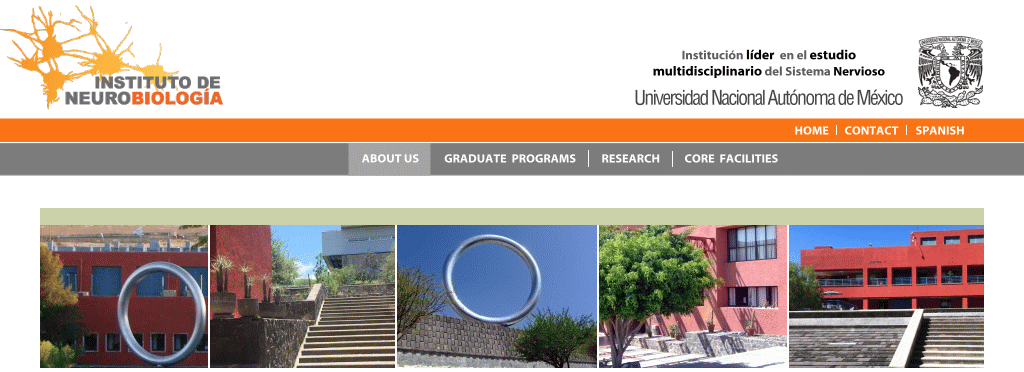



The current Institute of Neurobiology is an heir of the Mexican school of research on integrative neurobiology, which originated in the 1940´s when diverse groups from various institutions dispersed throughout the country started to work on neurophysiology, experimental neuropsychiatry, psychophysiology, behaviour, neuroanatomy, neurochemistry, and neuroendocrinology.
Despite the long-established Mexican tradition of neuroscience studies, a university-based institute, devoted mainly to research on the nervous system and its functions, did not exist, for several subsequent decades.
Therefore, in 1993 the National Autonomous University of México (Universidad Nacional Autónoma de México, UNAM) decided to support neuroscience research by creating an institution that not only acknowledged the history of such a discipline in the country but, even more importantly, also promoted the education and training of students in neuroscience.
This decision was strengthened by the explosive development of the neurosciences at an international level, stimulated by the “Brain Decade” initiative (1990-2000) and by the commitment to promote integrative studies of the structure, mechanisms of operation, and function of the nervous system using multi-, inter-, and transdisciplinary approaches.
The creation of the Institute coincided with the effort by UNAM to decentralize its scientific research and better serve México as a truly national university. Thus, the Institute was founded on a new UNAM Campus in Juriquilla, in the state of Querétaro, representing a nucleus of academic development in the Bajío region of central México.